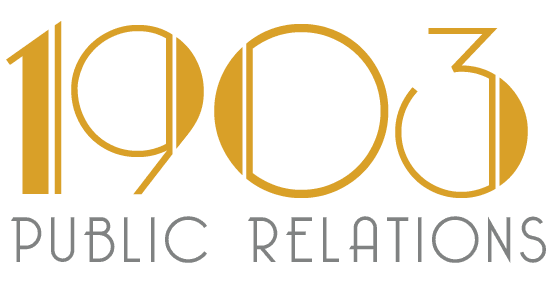In our super-connected world, a brand’s image can crumble in seconds. One wrong move can lead to a public outcry, lasting damage, and a loss of trust. That’s why handling a crisis well is so important—yet, some brands still get it wrong. Here, we look at three major brand scandals from the last ten years to see what went wrong and explore how these brands might have softened the impact with better crisis responses.
Why Culture Awareness Matters
What Went Wrong: In 2017, Pepsi released an ad featuring Kendall Jenner at a protest, where she hands a can of Pepsi to a police officer, implying that the gesture easily resolved tensions. Many viewers found this ad insensitive, accusing Pepsi of trivializing a serious issue and capitalizing on the moment for commercial gain. The backlash was quick and intense, with many feeling that Pepsi missed the mark.
What Could Have Helped: Pepsi might have avoided this situation all together, with proper checks and balances around their ads approval process. The topics and themes touched on would have benefited from including a more diverse group in the ads creation, which could have anticipated the backlash and mitigated the issue all together. Consulting real life people connected with the topic could have guided them toward a more genuine and respectful ad. They could also have issued a more direct apology, rather than just pulling the spot without much explanation.
How the Fallout Was Managed: Pepsi quickly pulled its controversial “Protest” ad, issued a public apology acknowledging their mistake, and apologized to Kendall Jenner for her unintentional involvement. Although, everyone involved including the talent should have had reps who should have seen this as a glaring potential problem. Following these actions, Pepsi opted for a low media profile, choosing not to engage further in the public debate.
The backlash likely prompted Pepsi to reevaluate its ad review process to improve cultural sensitivity. Shifting back to light-hearted, product-focused advertising, Pepsi distanced itself from potentially divisive themes, helping to gradually restore its brand image.
Facebook’s Cambridge Analytica Scandal (2018)
What Went Wrong: Facebook found itself in hot water when it was discovered that Cambridge Analytica had accessed data from millions of users without their knowledge, allegedly to influence voters in the 2016 U.S. presidential election. The information had been provided through their API to developers with users’ consent. Facebook’s initial responses seemed vague and defensive, leaving users feeling as though Facebook wasn’t being honest or transparent about the situation. Trust in the platform dropped sharply by 66% as users felt their privacy had been invaded.
What Could Have Helped: Facebook maintained that the information had not been hacked or stolen, but had an unclear message as the event was occurring. If Facebook had responded quickly and clearly, taking responsibility and laying out specific steps to prevent this from happening again, it could have helped calm user concerns. Hosting a press conference to openly answer questions from both users and the media might have shown they were committed to fixing the issue instead of minimizing it. Should they have brought in communications to every aspect of their company, there could have either been concerns raised or plans prepared for a day that issues could have arisen around data-sharing.
How the Fallout Was Managed: In response to the Cambridge Analytica scandal, Facebook took action to regain user trust. CEO Mark Zuckerberg publicly apologized for not better protecting user data and promised changes. Facebook tightened privacy rules, making it harder for outside apps to access users’ information. Zuckerberg also spoke openly in interviews and in Congress to explain what happened and how Facebook planned to fix it. Facebook launched a campaign to help users understand and control their privacy settings. Internally, Facebook likely reviewed its practices to shift toward a culture that prioritizes user privacy and accountability in future decisions.
Boeing’s 737 MAX Crisis (2019)
What Went Wrong: Boeing faced a major crisis when two of its 737 MAX planes crashed, resulting in hundreds of lives lost. Investigations revealed design issues and a lack of transparency about safety concerns. Boeing was criticized for putting profit before safety and for being slow to take responsibility.
What Could Have Helped: From a PR stand point, Boeing needed a strong strategy that brought together communications and legal departments to work in tangent to protect the company’s public image, while assuring there are no missteps taken that could have legal implications. While safety and transparency should be at the forefront of the approach, an acknowledgement of understanding of the gravity of the situation was critical.
Providing clear updates about what they were doing to fix the problems could have helped reassure the public.
How the Fallout Was Managed: After the 737 MAX crashes, the CEO publicly apologized and supported grounding all 737 MAX planes. Boeing cooperated with investigations to find and fix the issues, gave regular updates on safety improvements, and set aside funds to compensate families and airlines affected by the crashes. The company also began shifting its focus internally to put safety above profits. These actions aimed to show that Boeing was being transparent, responsible, and caring, though a quicker and more open approach might have helped limit some of the damage sooner.
Key Takeaways for Brands
Not all crises are equal, some are preventable, others can’t be mitigated, and in rare occasions some will gravely impact a company. These cases emphasize how important it is for brands to be transparent, show empathy, and communicate openly during a crisis. A quick response that acknowledges the problem, gives a clear plan of action, and directly engages with people affected can go a long way toward reducing the damage. Brands should also be aware that people value authenticity and cultural sensitivity, especially today. Learning from past mistakes and having a strong crisis plan can help brands avoid becoming the next big scandal.
Need a Crisis Consultation?
At 1903 Public Relations, we understand the challenges of protecting a brand’s reputation in tough times. Whether you want to prepare for potential issues or need immediate help with a current crisis, our team is ready to support you.
Schedule a Meeting Today

